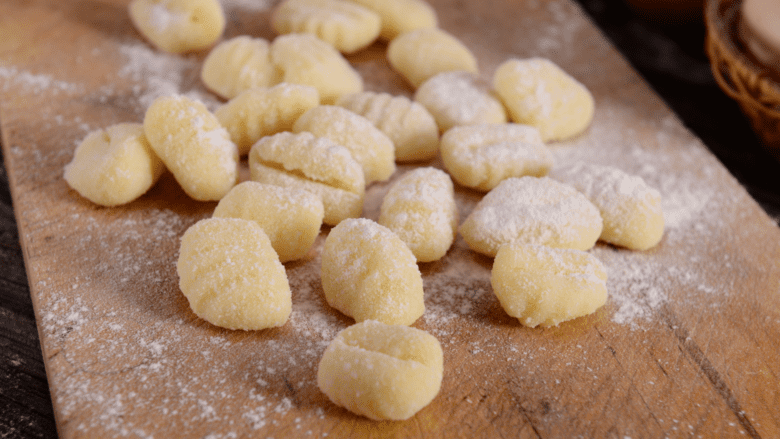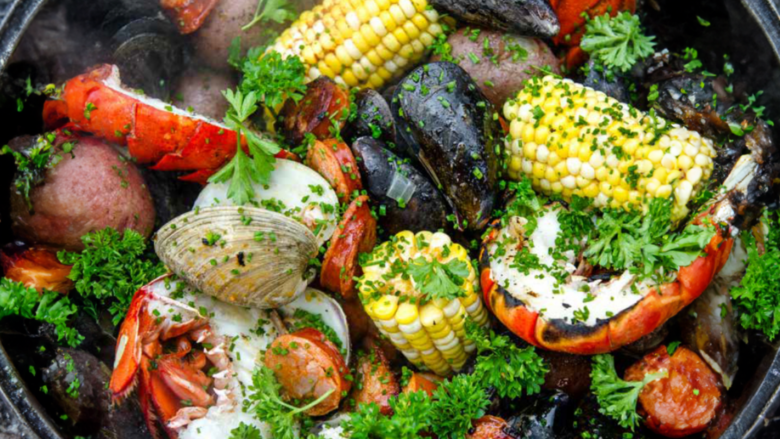Jody Adams has a lot of titles. She’s a James Beard Award winner, chef-owner of Rialto and Trade, cookbook author and one-time cheftestant on Top Chef Masters, where she made it as far as the Champions’ Round before being sent home. She finds herself in front of the cameras again this week for Top Chef Boston’s final stateside episode, only this time she’s in the dining room instead of the kitchen. What was it like for her to be on the other side of the swinging door? Click to read what she had to say about the filming, her advice for the remaining competitors and her take-aways from her time on Top Chef Masters.
Boston Chefs: You did very well on Top Chef Masters. How did it feel to be on the other side of the table as an observer?
Chef Jody Adams: It reminded me of the way I felt as a teenager when I was watching our traditional, neighborhood Christmas play from the audience as opposed to a performer. So, the performers were always children and I had always been in the play but I had outgrown the role and that’s how it felt. I knew what was going on, but I was looking at it from a bird’s-eye view so I realized that I really missed being a part of performing. It is much more fun being on stage than in the audience. That’s how it felt, like I was in the wrong place.
BC: You’d rather be cooking and competing rather than judging?
Adams: Yeah. I love the process of cooking and I loved being on Top Chef Masters.
BC: Given that you know what it’s like to be in the cheftestants’ shoes, is it uncomfortable judging dishes?
Adams: I find it really difficult because I know what it took to get the plate to the table, particularly under the time constraints. You’re working against the clock, you’re working in a kitchen that you don’t know and in some of the competitions you’re working under some really adverse conditions, so I find it hard to judge objectively.
BC: What is it you’re looking for in a dish when you have to judge? What do you base your assessment on?
Adams: Well, I’m always looking for good flavor; are they getting the best flavor out of the ingredients? And then I assess technique; were things cooked properly, were they cooked the way that they said they were cooking them? And then, it’s important obviously, plate presentation. And then creativity or innovation. So, in that order, that’s what I assess.
BC: Does the same apply when you’re assessing a chef’s abilities?
Adams: It depends on if it’s a TV show or if I’m hiring for my restaurant. If I’m hiring, I’m looking for somebody with energy and the overused word “passion.” Somebody who just really wants to be in my kitchen. But, I would say generally, if I’m assessing chefs what I’m looking for is commitment to making really good quality food and using good quality ingredients. It’s not about making some wild cuisine or a trying to be on TV. Priority is commitment to making quality food and professionalism; realizing that this is a profession. Also, knowledge; have they done their homework? Do they know what they’re talking about? I think confidence is also extremely important, confidence in what you do and talent.
BC: Are there qualities in a good chef candidate and a good Top Chef contestant that overlap?
Adams: I think the really good people always shine. The people who put a priority on quality food. Good flavor, that’s the first thing that I look for in a dish and it’s the first thing I look for in a chef. Also, if they’re professional in that environment, they’ll be professional outside of the TV studio as well. These shows show people as being really cutthroat and often times they’ll show a particular side of them that might be slightly exaggerated through the magic of television. You have to be careful what you present because that’s what they’re gonna show.
BC: Does being on a show like Top Chef make a chef better? Were there skills that you learned as a competitor on Top Chef Masters?
Adams: Yeah, I think it does make you a better chef. If you’re going to do it you’ve got to be extremely efficient and organized. In my experience, when I ultimately was voted off of the island, it was because in that particular episode I wasn’t organized. I know exactly what I did wrong. So, I think certainly if you’re going through the whole process and you’re paying attention, you become better at production. If you pay attention you get direct feedback about your food from the public. Then there are the judges who are really knowledgeable about food, and also your peers who you are working side by side with. So, if you pay attention to all of their feedback you’ll learn a lot. I think that’s extremely valuable. You also learn a lot if you study who is winning and why. Why are judges picking their particular plates over yours if you’re not winning? And then there’s just so much good cooking going on, there are so many talented people. You can learn about new techniques from the people around you.
BC: If you were designing a Top Chef Boston challenge what would it be?
Adams: I would say, lunch on board for rowers. So, the meal would be cooked on the back of the Charles River and delivered, by boat, to two rowing teams on their boats.
BC: It would have to be something that they could eat, in a boat while rowing?
Adams: Yeah, or just stationary, like while they’re sitting in the boat. So, the chefs would have to be able to deliver it by boat.
BC: Ok. What makes Boston a good location for Top Chef or why is now a good time to host this show?
Adams: I think when you think about Boston you think about an old city. It’s certainly one of the oldest cities in the country. It’s home to Julia Child and home to one of the first great, spectacular cooking shows and we’ve had great food and talent in this city for years but we had a bad rap for beans and cod. And people still talk about that. So, I think what we know now is we have a city – and it’s also Cambridge and Somerville and some of the outlying areas- full of talented, young, chefs and restaurateurs. So many great, interesting things are happening here not just in restaurants but in food in general.
You know, I had a ton of fun. It’s not just what can you learn about cooking; you can also learn a lot about yourself. It’s important to trust what you know, trust your cooking and really pay attention to what it does to your confidence. When I asked Rick Bayless, who was the winner of the first season, if I should do the show he said, “You have to remember, this is not a cooking show, this is a game and you will be taxed emotionally, physically and psychologically and you have to prepare for that.” And I asked him if it was fun and he said “I don’t know if I would call it fun.” I actually had fun. I really like it but it was hard. I hope people appreciate that about all of these young people putting themselves out there to undergo such a difficult challenge.















